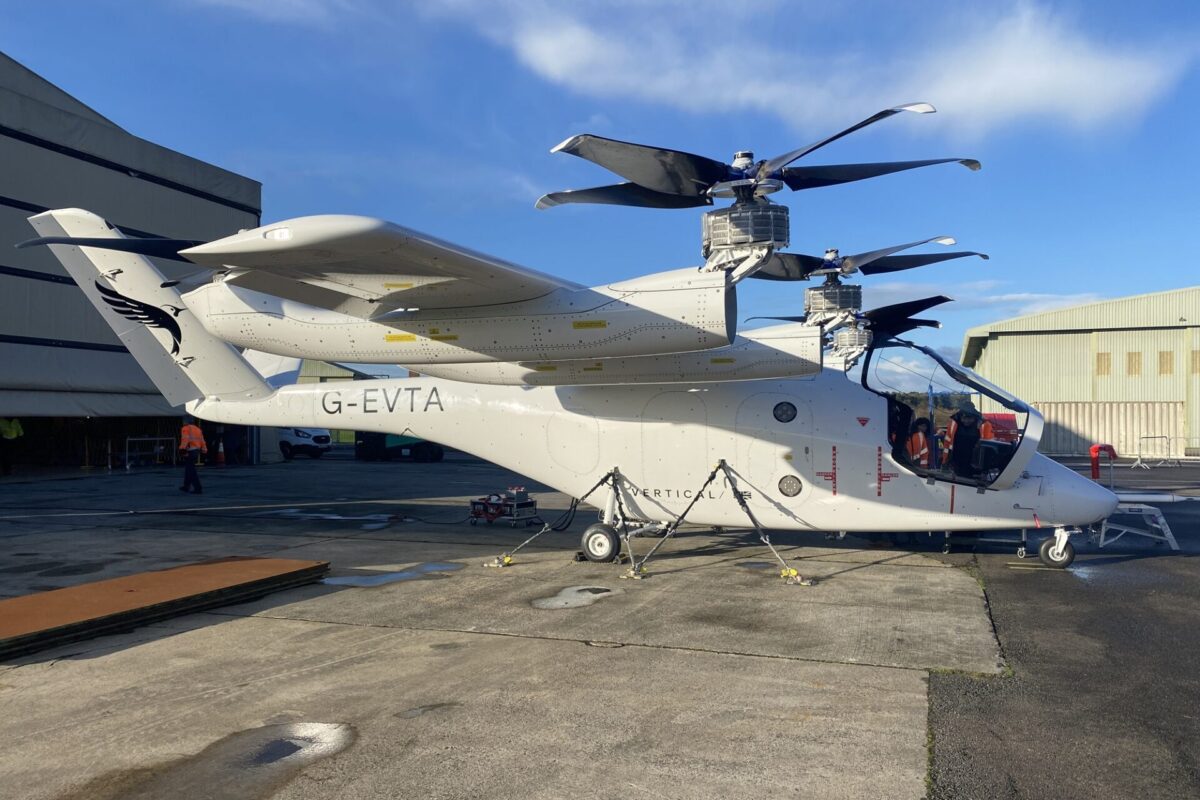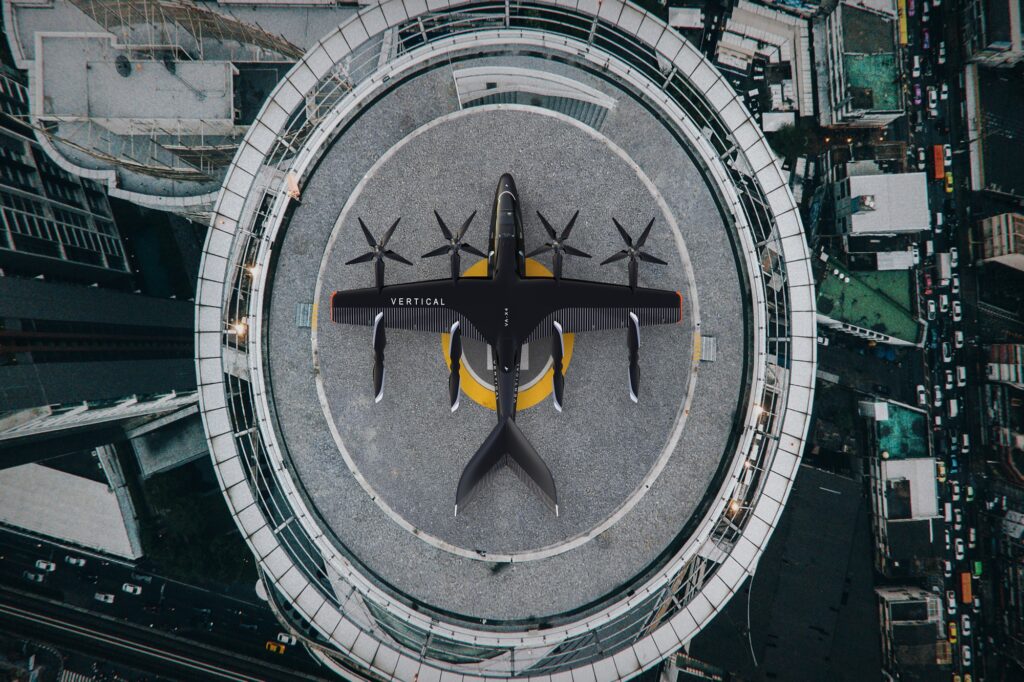UK-based aerospace company Vertical Aerospace has announced an intention to develop a hybrid-electric vertical take-off and landing (VTOL) variant of its yet-to-be-certified VX4 aircraft. The new model, which will offer operators increased payload and range capabilities over the current under-development VX4, will “unlock new market opportunities within the already sizable addressable urban air mobility market,” said the company.
The broadening of Vertical’s hybrid-electric strategy, unveiled on May 12, 2025, builds on its all-electric VX4 platform, which is currently undergoing flight testing, as well as the company’s ‘Flightpath 2030’ strategy’ which plans for the eVTOL variant of the VX4 to receive its type certification in the UK and Europe in 2028, followed by validation by other key global regulatory authorities by 2030.
The company believes that offering a more capable VX4 variant will make the type a far more attractive proposition in markets where more versatility and flexibility may be required for specific missions. These may include operations linked to defence, logistics, and other commercial sectors, including air ambulance services, which require longer range and higher payload than current eVTOL platforms can deliver.
Vertical’s second-generation hybrid-propulsion system, which has been in development for 18 months at the Vertical Energy Centre, will be retrofitted into one of the company’s VX4 full-scale prototypes and is expected to commence flight testing in the second quarter of 2026. Key targeted capabilities of Vertical’s hybrid-electric variant are a range of up to 1,000 miles (1,600km), a figure that represents a 10-fold increase over the fully-electric VX4, and with a maximum payload of 1,100 kilograms (2,424 lbs) in the VX4’s airframe capacity.
According to the manufacturer, other advantages of the VX4 hybrid variant, making it ideal for military and defense applications, are its stealth characteristics with a low noise and heat footprint, which the company says makes it ideal for ‘sensitive’ missions. The hybrid VX4 will also be offered in crewed and uncrewed variants, adding to its versatility. The uncrewed variant can be “seamlessly integrated into the existing Flight Control System currently being developed by Honeywell,” said Vertical.
Additionally, further advantages of the hybrid version will be an added layer of mission resilience, using the VX4’s redundancy and damage tolerances, which will “boost confidence for mission-critical operations.”
“The demand for long-range, high-payload, quiet aircraft is growing rapidly – especially across defense and critical logistics,” said Stuart Simpson, CEO of Vertical Aerospace. “Our hybrid-electric VTOL strategy builds on our existing electric platform, world-class battery technology, and large, versatile airframe, allowing us to offer uniquely scalable solutions that unlock a new frontier in air mobility and revenue stream for Vertical.”
The company adds that the “hybrid-electric potential to be enabled by proprietary battery technology and airframe Vertical’s proprietary battery platform, developed at its purpose-built Vertical Energy Centre, is a critical component of its hybrid-electric capability. Vertical’s battery will help power the superior hybrid range and payload capabilities, enabling best-in-class performance for mission-critical use cases. Vertical’s hybrid team has developed advanced control systems supporting safe operation and redundancy, meeting strict European Union Aviation Safety Agency (EASA) and UK Civil Aviation Authority (CAA) safety standards for eVTOL flight.”
Development already underway
According to a Vertical statement, bench testing has already validated its hybrid-electric architecture, including the successful integration of control algorithms between the power unit and battery. Additionally, the developer adds that the VX4’s large and flexible airframe enables the integration of hybrid-electric propulsion technology and superior payload capacity without requiring any major redesign.
“This design freedom supports both operational scalability and mission versatility – advantages that smaller platforms may struggle to accommodate. Uniquely positioned to meet the growing defence needs across Europe as the only remaining credible European eVTOL company, Vertical’s hybrid-electric capabilities position it as a key player amid growing defence budgets and increasing focus on sovereign industrial capacity,” said the Vertical statement.
“As European governments increasingly look to develop new technologies and platforms to strengthen their defence capabilities, Vertical is actively engaged in discussions with government agencies, as well as other prospective customers, around defence applications and other potential use cases for its hybrid-electric aircraft,” the company concludes.
The move into the hybrid-electric VTOL arena will bring the VX4 into direct competition with other key players in the field, primarily the Canada-built Horizon Aircraft Cavorite X7, which will offer a range of 900 miles (1,450km) and a payload of 680kg (1,500 lbs) once it enters into service.





